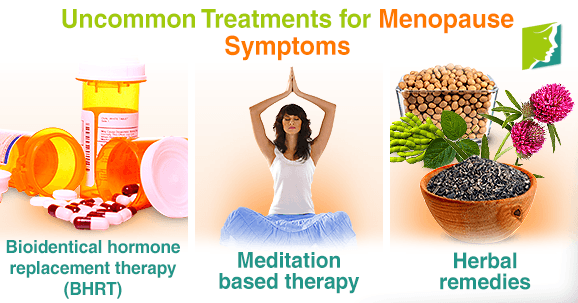Treating menopause symptoms can be tricky, as certain methods do not work for everyone. It is important to try different options to find one that works for you. Some common treatment options include exercising regularly, reducing stress, and eating healthy. These tend to work for most women, and are beneficial to overall health and well-being. However, if these methods are not effective, it may be appropriate to try some more uncommon treatments. These include things like bioidentical hormone replacement therapy, tai chi, acupuncture, and herbal remedies.
Bioidentical Hormone Replacement Therapy (BHRT)
BHRT refers to medications that are prepared in specialized pharmacies. BHRT may contain any variation of hormones such as estrone, estradiol, estriol, progesterone, and testosterone. While there are many studies being conducted on the effectiveness of this treatment, it is not currently approved by the U.S. Food and Drug Administration (FDA). Since each batch is custom-made and there are not any fixed guidelines, BHRT is considered experimental.
Meditation Based Therapy
Practices like tai chi, yoga, and acupuncture are uncommon treatments for menopausal symptoms, but may reduce stress and help treat pain. Research has shown that these mind and body therapies may help reduce typical menopausal symptoms like sleep disorders, mood swings, stress, hot flashes, and muscle and joint pain.
Herbal Remedies
Herbal remedies are a natural way to help manage menopause symptoms. Some have been shown to be more effective than others, but listed are some helpful herbal options.
There are two natural methods for balancing hormone levels: using phytoestrogenic or hormone-regulating herbal remedies.
Phytoestrogenic herbal remedies
These herbal remedies contain plant-based estrogen, similar to the natural estrogen in a woman's body. These herbal remedies help women with menopause symptoms when estrogen levels are very low. Good sources of phytoestrogens are:
Red clover. This herb, often seen in meadows, is rich in phytoestrogens.
Soy. Like red clover, soy contains genistein, a type of phytoestrogen. Soy has been shown to help relieve menopausal symptoms like hot flashes. It is also available as herbal supplements, or you can also consume it in soybeans, tofu, tempeh, and soymilk.
Black cohosh. Black cohosh is also a phytoestrogenic herb that has been used traditionally by Native Americans. Black cohosh has been used to treat menopausal symptoms like hot flashes.
Hormone-regulating herbal remedies
These herbal remedies or supplements are one of the easiest ways you can balance your hormones. For example, Macafem can be an effective natural treatment for menopause symptoms.
The menopause transition is unfortunately accompanied by symptoms like hot flashes, night sweats, vaginal dryness, loss of libido, mood swings, and weight gain, to name a few. There are many different treatment options, and their effectiveness is relative to a woman's genetics, lifestyle, medical history, and comfort. Uncommon treatments for menopausal symptoms, like acupuncture and herbal remedies, are an interesting alternative to other methods.
Sources
- National Institute on Aging. (2012). Hormones and Menopause. Retrieved July 25, 2014, from http://www.nia.nih.gov/health/publication/hormones-and-menopause
- National Center for Complementary and Alternative Medicine. (2012). Menopause Symptoms and Complimentary Health Practices. Retrieved July 25, 2014, from http://nccam.nih.gov/health/menopause/menopausesymptoms
- NYU Langone Medical Center. (2013). Genistein. Retrieved July 25, 2014, from http://www.med.nyu.edu/content?ChunkIID=21734
- Office on Women's Health. (2010). Menopause. Retrieved July 25, 2014, from http://womenshealth.gov/menopause/symptom-relief-treatment/natural-alternative-treatments-lifestyle-changes.html




